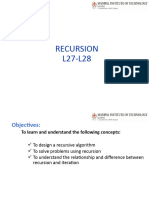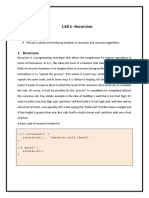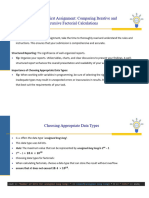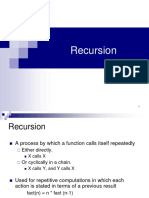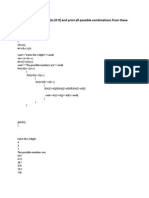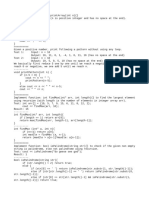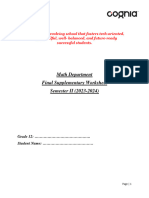0% found this document useful (0 votes)
40 views27 pagesRecursion and Storage Classes
Uploaded by
Ulugbek KushakovCopyright
© © All Rights Reserved
We take content rights seriously. If you suspect this is your content, claim it here.
Available Formats
Download as PPTX, PDF, TXT or read online on Scribd
0% found this document useful (0 votes)
40 views27 pagesRecursion and Storage Classes
Uploaded by
Ulugbek KushakovCopyright
© © All Rights Reserved
We take content rights seriously. If you suspect this is your content, claim it here.
Available Formats
Download as PPTX, PDF, TXT or read online on Scribd
/ 27





